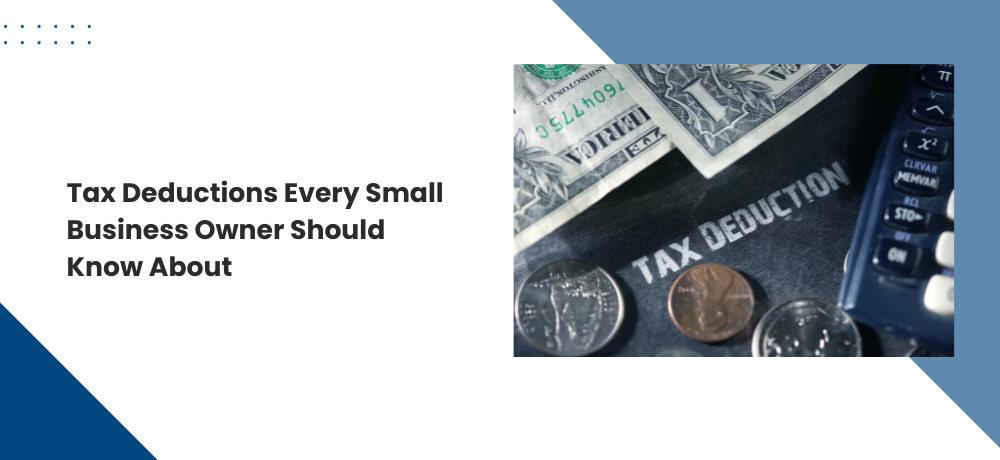Tax Deductions Every Small Business Owner Should Know About

Taxes are an inevitable part of running a business, but they don't have to be a burden. Small business owners often miss out on valuable tax deductions simply because they're not aware of them. In this blog, we will provide insights into essential tax deductions that every small business owner should be aware of. These deductions can save you money and contribute to the financial health of your company.
Tax-Deductible Business Expenses
One of the primary benefits for small business owners in Canada is the ability to deduct various business expenses from their taxable income. These expenses can include rent, utilities, office supplies, advertising, business insurance, and professional fees. It's essential to maintain organized records of these expenses, including receipts and invoices, to ensure accurate documentation when claiming these deductions.
Furthermore, when it comes to business-related travel, meals, and entertainment expenses, specific rules and limitations apply. It's important to be aware of these rules and consult with a tax professional to ensure you're claiming the right amount and adhering to the tax regulations.
Tax Savings with Home Office Deductions
If your small business operates out of your home, you may qualify for a home office deduction. This deduction allows you to claim a portion of your home-related expenses as business expenses. This includes costs such as mortgage interest, property taxes, utilities, and maintenance. The deduction is based on the square footage of your home office compared to the total living space. Be mindful of the detailed record-keeping required to substantiate your claim and ensure that your home office meets the Canada Revenue Agency (CRA) criteria.
Depreciation and Capital Cost Allowance (CCA)
To encourage business growth and investment, the Canadian tax system allows small business owners to deduct the depreciation of eligible assets over time through the Capital Cost Allowance (CCA). Eligible assets may include machinery, equipment, and vehicles used in the business. The CCA deduction helps reduce your taxable income, allowing you to recover the cost of these assets. Keep in mind that different asset classes have varying depreciation rates, and maintaining accurate asset records is crucial to maximize your CCA deduction.
Leveraging the Small Business Deduction (SBD)
The Small Business Deduction (SBD) is a significant tax benefit for small business owners in Canada. It offers a reduced tax rate on the first $500,000 of active business income (as of my last update in 2021). To qualify for the SBD, your business must meet specific criteria, such as being a Canadian-controlled private corporation. It's important to stay informed about any changes to the SBD limit and eligibility criteria, as well as consult with a tax professional to ensure you're taking full advantage of this tax-saving opportunity.
Employee-Related Tax Deductions
Small business owners often hire employees to help run their operations. Employee expenses, such as salaries, benefits, and contributions to retirement plans, are tax-deductible. Maintaining accurate payroll records, adhering to employment standards and regulations, and staying informed about any changes in employment-related tax deductions are crucial.
By being aware of and strategically utilizing these tax deductions, small business owners can significantly reduce their tax liability and boost their bottom line. To explore more tax-saving opportunities or seek personalized guidance, get in touch with us today at Roche Financial Group. We're here to help you make the most of your financial resources.
To contact us, click here or call us at (905) 434-8648.